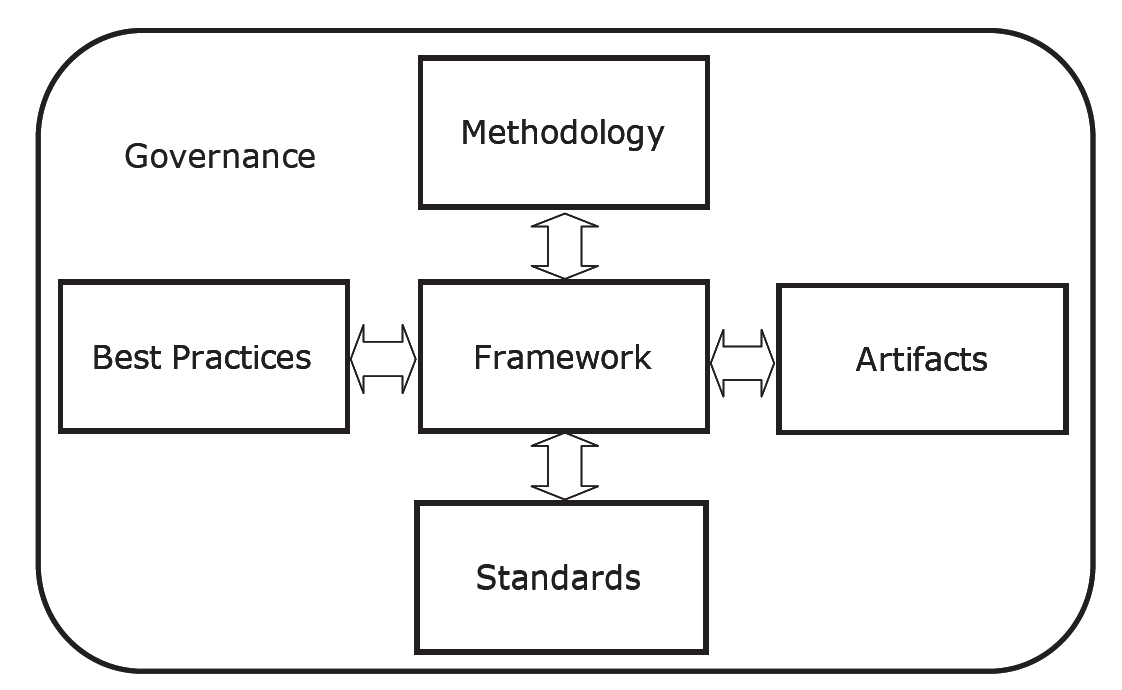A “complete” approach to enterprise architecture has six core elements:

Governance
The first core element is “Governance” which identifies the planning, decision-making, and oversight processes and groups that will determine how the EA is developed and maintained, accomplished as part of an organization’s overall governance.
Methodology
The second core element is “Methodology” which are specific steps to establish and maintain an EA program, via the selected approach.
Framework
The third core element is “Framework” which identifies the scope of the overall architecture and the type and relationship of the various subarchitecture levels and threads. Not all frameworks allow for sub-domains or are able to integrate strategy, business, and technology planning.
Artifacts
The fourth core element is “Artifacts” which identifies the types and methods of documentation to be used in each sub-architecture area, including strategic analyses, business plans, internal controls, security controls, and models of workflow, databases, systems, and networks. This core element also includes the online repository where artifacts are stored.
Standards
The fifth core element is “Standards” which identify business and technology standards for the enterprise in each domain, segment, and component of the EA. This includes recognized international, national, local, and industry standards as well as enterprise-specific standards.
Best Practices
The sixth core element is “Associated Best Practices” which are proven ways to implement parts of the overall architecture or sub-architectures, in context of the over-arching EA.